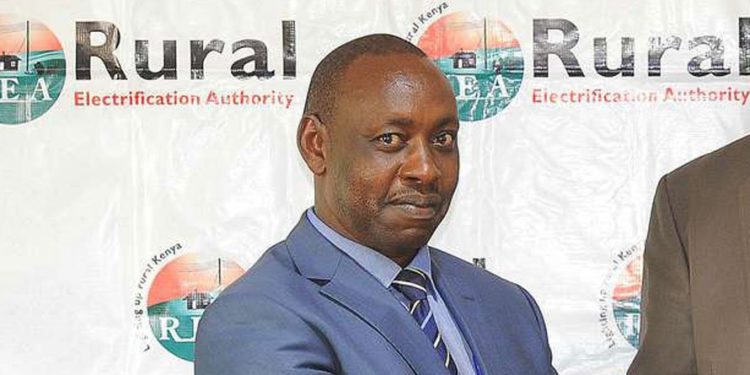Rural Electrification and Energy Corporation (REREC) CEO Peter Mbugua has been suspended over alleged Ksh500 million fraud entailing fake surveys.
According to audits, the company fraudulently paid Ksh430 million for geospatial engineers, business consultants, universal land services, and Theodore studies.
The audit raised concerns about suspicious billing and was unable to confirm whether the surveys had been conducted. As a result, the management fired the accounting and finance employees. The board also placed the CEO on administrative leave while an investigation was been conducted.
“We make reference to an internal audit dated July 2022 where it was alleged that you prepared irregular payment invoices together with payment certificates of survey for projects that did not exist amounting to Ksh430 million,” one of the suspension letters reads.
The suspension comes days after a boardroom dispute in which a petitioner contested Energy Cabinet Secretary Monica Juma’s selections, leading the High Court to block the appointment of eight members.
Ksh9.6 billion annual budget is controlled by the state firm whose mission is to provide energy to rural communities, and prior managers have been fired for misusing funds.
Justice Aaron Ringera Appointed Kenya Power Non-Executive Director
Mbugua’s predecessor Ng’ang’a Munyu was removed from office in 2017 in order to allow for an audit of how billions of shillings were spent on a primary school electrification program.
The boardroom wars led to a court case, in which High Court blocked eight board members from holding office after a disagreement over their selections, preventing the agency from filling board positions.
Board Chair Wacuka Ikua, Brig Hassan Sora, Rhoda Njuguna, Wahome Gitonga, Mary Mwiti, Eva Sawe, Samuel Mugo Kimani, and John Karamunya Limakamar are among the affected directors.
In a lawsuit filed by Mr David Simiyu, it was alleged that the appointments violated the law due to a lack of competition and transparency in the hiring process.
Additionally, the petitioner also questioned CS Juma’s authority to choose four board members.
In March 2017, Mr Mbugua took over from Mr Munyu, and since then, his reign has not been without controversy.
Read: Rigathi Gachagua Loses Ksh200 Million In Case Against State
REREC was charged with granting contracts for power poles to businesses whose directors shared ownership, resulting in the sale of substandard wooden poles for Ksh800 million.
According to the Competition Authority of Kenya (CAK), five out of the 18 companies that won bids in 2019 had the same directors controlling them and submitted comparable proposals, driving up the price of the delivered goods.
The five businesses — Mashebrum Ltd., Sonara Ventures Ltd., Sums Decorators, Top Range Ventures Ltd., and Tradewinds International Ltd. — were looked into, and determined to be at fault.
The businesses came to a settlement agreement and paid a fine of Ksh1,305,355. The antitrust watchdog also stated that another company, Naweza Investment Ltd., was a subject of ongoing inquiries.
After receiving a complaint from Inter Tropical Timber Ltd (ITTL) in September 2019, CAK opened an investigation into alleged REREC tender irregularities.
Read: EACC Sues Homabay County Officials Over Ksh36M Fraud
In court, the companies said that the suppliers had conspired with them to make low-quality goods that misled customers.
REREC had been illegally terminating contracts and automatically giving them to some businesses, according to ITTL, who also informed CAK that there had been instances of cross-directorship in many businesses that were competing in the same tender.
While Kenya Power, a 75% state-owned firm that is listed on the Nairobi Securities Exchange, oversees distribution and consumer billing, REREC’s mission is to hasten rural electrification projects across Kenya.
To connect households in outlying settlements, REREC will now build transformers and low-voltage cables. The homeowners would give Kenya Power Ksh15,000 in exchange for meters and grid connections.
Under the National Government Constituencies Development Fund (NG-CDF), the state body is also collaborating with county governments and constituencies to advance rural electricity.
According to the agreement, REREC will pay the remaining half of the cost of installing power grids in rural areas, with county governments and constituency development funds covering the other half.
The action is intended to enhance electricity supplies to rural residences and retail establishments, particularly in dry and semi-arid regions.
REREC has recently advanced rural electrification projects, bringing Kenya closer to financial stability. According to Treasury calculations, REREC returned a surplus of Ksh7.2 billion in the year to June.
Email your news TIPS to editor@thesharpdaily.com

















